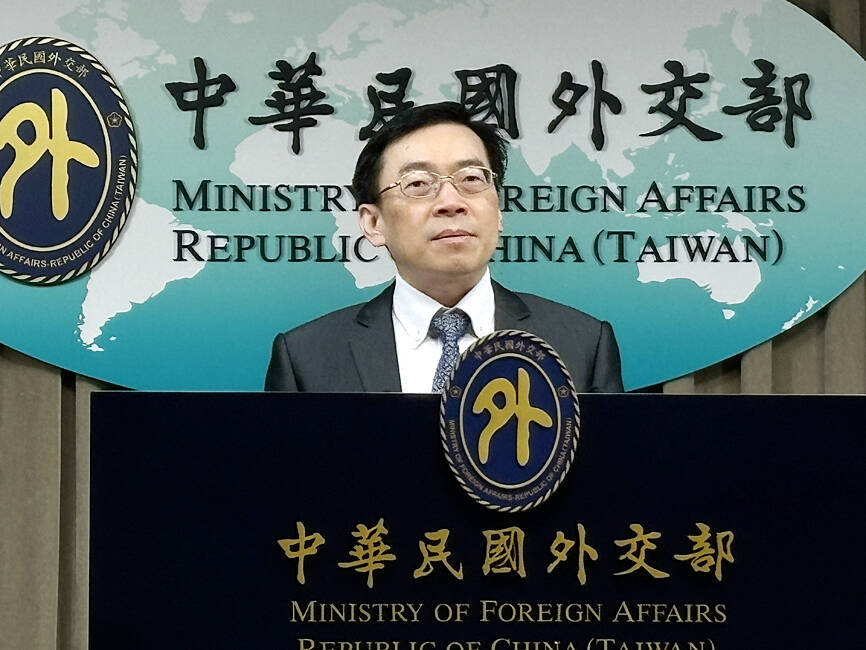Taiwanese were the biggest spenders among foreign visitors to Japan last year, edging out visitors from China for the top spot, Japan Tourism Agency figures showed.
Taiwanese spent about ¥783.5 billion (US$5.16 billion) in Japan over the year, up 42 percent from 2019, the last full year before the COVID-19 pandemic hit.
Spending soared despite the total number of visitors from Taiwan falling 10.4 percent from 2019, Japan Tourism Agency figures showed.

Photo: Yang Yao-ju, Taipei Times
The increase in spending might have been because of the devaluation of the Japanese yen, which last year was worth 20 to 25 percent less against the New Taiwan dollar than in 2019.
China ranked just behind Taiwan in total spending last year, with 2.36 million visitors spending ¥760.4 billion, followed by South Korea with 6.94 million visitors spending ¥739.2 billion.
Overall, total spending by foreign visitors in Japan hit a record ¥5.31 trillion, up 10.2 percent from 2019, with spending by Taiwanese visitors accounting for 14.8 percent of the total, the data showed.
Taiwanese spent ¥274.2 billion on shopping, ¥220.3 billion on accommodation, ¥167.1 billion on dining, ¥79.8 billion on transportation and ¥41.4 billion on entertainment and other services.
Japan has long been a favored destination of Taiwanese, and that was especially the case after COVID-19 restrictions were lifted in late 2022.
Last year, 4.23 million Taiwanese visited Japan, compared with the 1.76 million who visited China, the second most popular destination, outbound traveler statistics for Taiwan showed.
While Taiwanese spent the most in Japan overall last year, visitors from Australia took the top spot with regards to average spending at ¥341,000 per person, followed by Spain at ¥336,000 and Italy at ¥334,000, the Japan Tourism Agency said.
In related news, Taiwan-Japan Relations Association Deputy Secretary-General Fan Chen-kuo (范振國) yesterday warned people traveling to Japan not to consume or buy products containing red yeast rice.
The reminder came ahead of the Tomb Sweeping Day long weekend, which starts tomorrow, as many Taiwanese are expected to travel to Japan, he said.
The Food and Drug Administration has asked Japan to provide export information on the red yeast rice used by Kobayashi Pharmaceutical Co, Fan said.
The drugmaker on March 22 said that its nutritional supplements containing red yeast rice might cause kidney problems.
The Ministry of Foreign Affairs has asked the Taipei Economic and Cultural Representative Office in Japan to monitor the issue and pass on related information to government agencies, Fan said.
The Japanese government is taking the issue seriously: Japanese Prime Minister Fumio Kishida has pledged a thorough investigation, and Japanese Chief Cabinet Secretary Yoshimasa Hayashi said that the WHO would be kept informed, while Japan’s embassies abroad would share information related to the case, Fan said.
Additional reporting by Liu Tzu-hsuan

Alain Robert, known as the "French Spider-Man," praised Alex Honnold as exceptionally well-prepared after the US climber completed a free solo ascent of Taipei 101 yesterday. Robert said Honnold's ascent of the 508m-tall skyscraper in just more than one-and-a-half hours without using safety ropes or equipment was a remarkable achievement. "This is my life," he said in an interview conducted in French, adding that he liked the feeling of being "on the edge of danger." The 63-year-old Frenchman climbed Taipei 101 using ropes in December 2004, taking about four hours to reach the top. On a one-to-10 scale of difficulty, Robert said Taipei 101

Nipah virus infection is to be officially listed as a category 5 notifiable infectious disease in Taiwan in March, while clinical treatment guidelines are being formulated, the Centers for Disease Control (CDC) said yesterday. With Nipah infections being reported in other countries and considering its relatively high fatality rate, the centers on Jan. 16 announced that it would be listed as a notifiable infectious disease to bolster the nation’s systematic early warning system and increase public awareness, the CDC said. Bangladesh reported four fatal cases last year in separate districts, with three linked to raw date palm sap consumption, CDC Epidemic Intelligence

Two Taiwanese prosecutors were questioned by Chinese security personnel at their hotel during a trip to China’s Henan Province this month, the Mainland Affairs Council (MAC) said yesterday. The officers had personal information on the prosecutors, including “when they were assigned to their posts, their work locations and job titles,” MAC Deputy Minister and spokesman Liang Wen-chieh (梁文傑) said. On top of asking about their agencies and positions, the officers also questioned the prosecutors about the Cross-Strait Joint Crime-Fighting and Judicial Mutual Assistance Agreement, a pact that serves as the framework for Taiwan-China cooperation on combating crime and providing judicial assistance, Liang

US climber Alex Honnold left Taiwan this morning a day after completing a free-solo ascent of Taipei 101, a feat that drew cheers from onlookers and gained widespread international attention. Honnold yesterday scaled the 101-story skyscraper without a rope or safety harness. The climb — the highest urban free-solo ascent ever attempted — took just more than 90 minutes and was streamed live on Netflix. It was covered by major international news outlets including CNN, the New York Times, the Guardian and the Wall Street Journal. As Honnold prepared to leave Taiwan today, he attracted a crowd when he and his wife, Sanni,